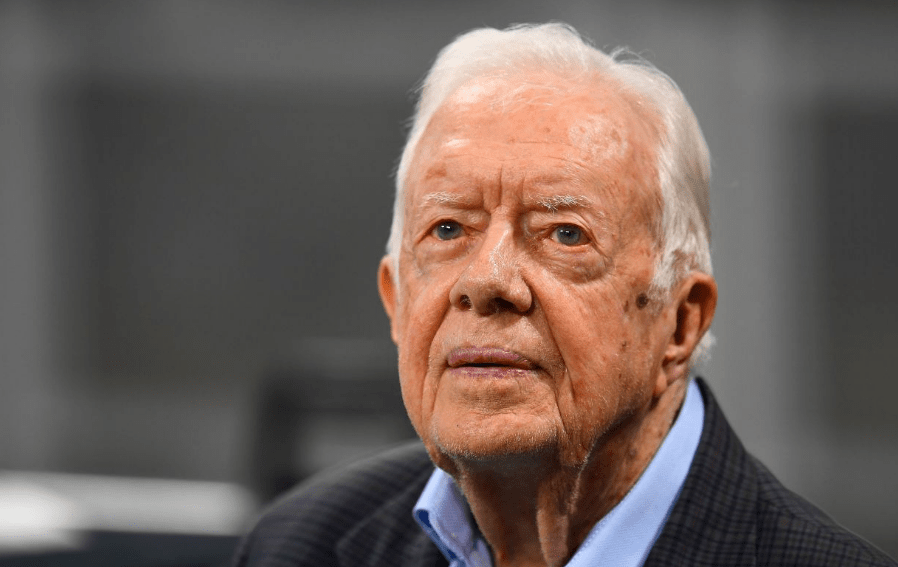By Malak Khaled
Jimmy Carter, the 39th US president, passed away on December 29, 2024, at the age of 100. His presidency, marked by diplomacy and human rights, reshaped U.S. involvement in the Middle East with a mix of significant achievements and challenges.
Carter, one of only four U.S. presidents to be awarded the Nobel Peace Prize, is remembered as a key figure in the pursuit of peace in the region.
Broker of the Camp David Accords
Carter’s most significant achievement was facilitating the Camp David Accords in 1978. The peace treaty between Egypt and Israel, which ended decades of hostility, was a landmark in Middle Eastern diplomacy.
Carter’s leadership was instrumental in achieving this peace, significantly reducing the threat of Arab-Israeli conflict and setting a precedent for future negotiations. While the peace process with the Palestinians faltered, the Egyptian-Israeli agreement remains a cornerstone of Carter’s legacy.
Advocate for Palestinian Rights and Statehood
Carter was a vocal advocate for Palestinian rights, consistently supporting a two-state solution. Carter expanded on his views in his book, Palestine: Peace Not Apartheid, where he called for a fair resolution to the Israeli-Palestinian conflict.
Although his efforts to secure Palestinian autonomy were not very effective, his steadfast support for Palestinian self-determination continues to shape diplomatic approaches to the issue.
Carter’s Human Rights Efforts in Iran and the Middle East
Carter’s administration focused on promoting human rights and diplomacy in the Middle East, aiming to improve relationships based on moral values, not just political or strategic gain.
During the Iranian Revolution, Carter shifted U.S. policy by prioritizing human rights. His foreign policy approach was different from that of previous presidents, and it caused him a lot of backlash.
Carter’s diplomacy helped strengthen ties with Arab countries, encouraging cooperation in areas like trade, development, and cultural exchange. He worked to build trust and foster better relationships with these nations, even as tensions rose in the region.
The Carter Doctrine and Regional Stability in the Gulf
The Carter Doctrine, while primarily focused on security and military intervention, indirectly shaped the Middle East’s stability by affirming U.S. commitment to protecting the region from external threats.
Carter declared that intervention in the Gulf area by an outside power “will be repelled by any means necessary, including military force.” This not only marked a shift towards a more militarized approach in the region, but it also signaled to Middle Eastern countries that the U.S. valued regional security.
By prioritizing the Persian Gulf’s strategic importance, Carter sought to safeguard U.S. allies and prevent the spread of Soviet influence during the Cold War. It laid the groundwork for future diplomatic relations and military cooperation that could be used to support peace in the region.
Carter’s Failings and Criticism
Despite his achievements, Carter faced significant criticism. He struggled to achieve Palestinian autonomy, and his reluctance to fully engage with the PLO hindered progress on peace in the region.
His handling of the Iranian Revolution and the subsequent hostage crisis was another major failure. The prolonged captivity of American hostages damaged his reputation, and many saw his response as weak.
This perception of U.S. vulnerability in Iran overshadowed his diplomatic efforts, ultimately contributing to his loss in the 1980 election.
Carter’s death has prompted a reflection on his lasting impact in the Middle East. His role in promoting peace, advocating for Palestinian rights, and his diplomatic engagement with various Arab nations shaped U.S. foreign policy for years to come.
WE ALSO SAID: Don’t Miss…Iran’s President Killed In Helicopter Crash: Who Was Ebrahim Raisi?



